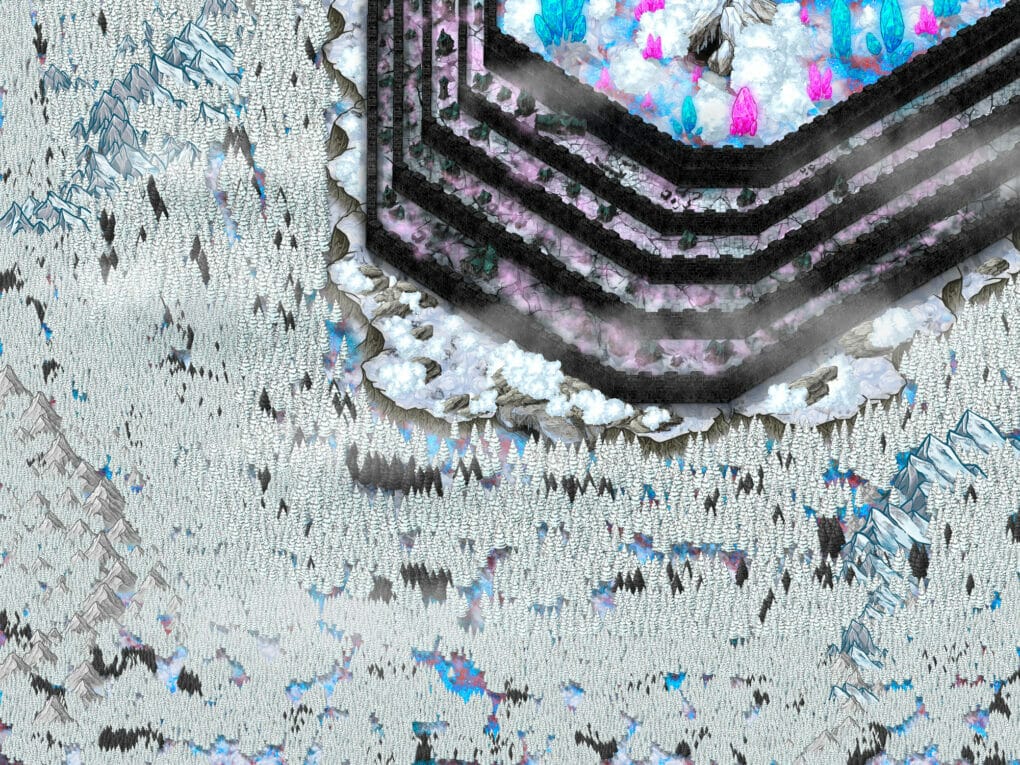
For most people, there are two types of stories – plot-driven or character-driven. Growing up, I was always told by the fiction writing experts that you either had cardboard cutouts running around taking over the world, or you had melodramatic, deep characters sitting on benches doing nothing but contemplating their neighbor’s existence.
Never both.
Genres such as fantasy lend themselves to wonderful plots. After all, who wouldn’t want pages full of lightsaber battles (yes, Star Wars is argued to be in the fantasy genre, not sci-fi), magic wars, special portals, secret quests, and irreversible curses? If you’re like me, then you’re helplessly in love with fantasy fiction – a true story fanatic at the heart. The stories we love draw us in with excitement and adventure, forcing us to live and partake in the grand adventures.
But are we really in love with the adventures? Sure, we can enjoy a grand story full of plot twists and sub-plots, but is that it? When we say we love a story, are we addressing the plot… or the characters?
Think about it. We as readers emotionally invest in fictional characters. Have you ever died inside when your favorite character left the fictional world? (Please tell me I am not the only one who gets choked up as Frodo sails in the West.) You experienced that pain; you died with them.
The character’s joy, pain, anger, trials and triumphs become yours when you experience the story.
Without them, there is no story. Their decisions and responses often determine major events in the plot.
As a writer of fantasy, I have come to learn and appreciate the importance of character development. We want readers to identify with the characters, to find a piece of themselves in the story.
As a writer, you need your reader to emotionally invest in your character. The fantasy genre can be difficult when it comes to creating 3-D characters as the genre relies heavily upon world building and is known for larger, all-encompassing plots. In the midst of the dark forests and evil kingdoms, realistic character development can be easily forgotten or belittled.
Several months ago, I researched common fantasy clichés just out of curiosity. Not to my surprise, many of the issues listed consisted of “common farm boy becomes king”, “sweet princess has no personality”, “old wizard is wise”… you get the idea. Boring. Standard. It serves the plot well, but the individuality of the character is diminished.
This isn’t to say to that all fantasy stories suffer from this issue of lack of character development. However, the genre lends itself to unique storytelling as it is set in a world where anything can happen. Magic exists. Animals talk. Humans are not the only intelligent beings. If the genre permits such imagination and diversity, then why should character development be any less?
Give your readers a reason to connect with your characters. It’s what we do in real life. We, as humans, interact with each other on a daily basis (unless you are like me and find yourself spending 25 hours of the day working alone). What is your MC’s thoughts on life? What makes him tick?
Grab a piece of paper and write a close family member or friend’s name on the top. Then write down their qualities – personality, their values, their background and how it affects them, the way they talk, the words they use, the way they handle situations, leader or follower… the list goes on.
The point isn’t about stressing over each character’s unique gifts and talents, making it a tiresome burden for you as a writer. It’s about giving your reader someone to connect with. We as humans are always looking for another empathetic being we can identify with, and in stories the only source for such connection lies in the character’s internal journey.
This is where people are divided on the issue of character-driven stories vs. plot-driven ones. Your story will fall into one category, but strive for both. People say character-driven stories may be dull and lack the excitement plot-driven ones contain.
But think of it this way: your characters should exciting. Even boring ol’ Scrooge (A Christmas Carol) was an intriguing character before he began his transformation. His flaws and the lingering question of whether or not he would overcome his short comings gave readers a reason to keep reading and identify with him. (Because we all have flaws.)
Think of it another way: what makes a day exciting? Crazy incidents occur because people make them happen. If no human is responsible, then how people react is often more intriguing than the event itself. Just turn on the news and you’ll get the idea.
There’s no difference in the art of storytelling. Your characters are the key factor in determining how the story often plays out, and because of their major importance, readers need to identify with them. Give your characters honest, unique, unpredictable traits, and your story (even character-driven ones) will be captivating.
Add dragons, kingdoms, bloody wars, demons, magic curses and all the other wonderful components of fantasy, and you have a page-turning story right there.
Give your readers characters to emotionally invest in. Give them real, flawed, and unique characters. Your readers won’t forget them

Rhia G. Adley is a creative writer and blogger who works with fiction to inspire writers to “live out the story they want to tell.” She strives to find the connection between fiction and real life, encouraging people to creatively write from the heart. She is currently working on several fantasy novels and is a big Tolkein fan. As an aspiring author, she is always learning and finding ways to grow in the art of fiction writing. You can read her short stories on her website and discover her mental meanderings on her Instagram and Facebook. She has always enjoyed writing stories for as long as she can remember, and today she is excited to share her work with you.




